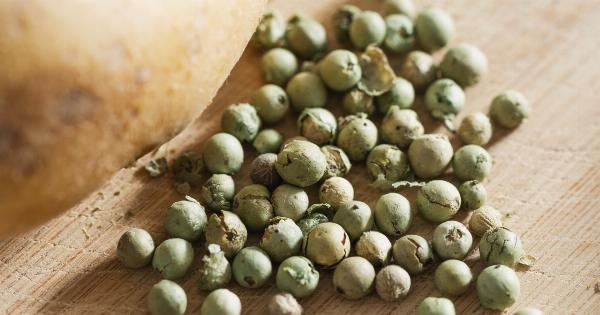Rheumatoid Arthritis (RA) is a chronic inflammatory condition that primarily affects the joints, causing pain, stiffness, and swelling.
While there is no specific diet to cure Rheumatoid Arthritis, certain foods have been identified as potential triggers for increased inflammation and exacerbation of symptoms.
If you are living with Rheumatoid Arthritis, it is important to be mindful of your diet and avoid foods that may worsen your symptoms.
By understanding which foods to avoid, you can take control of your condition and potentially find relief from the painful effects of Rheumatoid Arthritis.
The Impact of Diet on Rheumatoid Arthritis Symptoms
Research suggests that certain foods can contribute to inflammation in the body, which can worsen symptoms of Rheumatoid Arthritis.
Inflammation is a key feature of RA, and by avoiding foods that promote inflammation, you may be able to reduce the severity and frequency of your symptoms.
Additionally, maintaining a healthy weight is crucial for managing Rheumatoid Arthritis. Excess weight can strain the joints, leading to increased pain and reduced mobility.
A diet filled with nutritious foods and devoid of items that worsen inflammation can contribute to weight management efforts.
Foods to Avoid for Rheumatoid Arthritis Relief
1. Processed and Fried Foods
Processed and fried foods often contain high levels of trans fats and advanced glycation end products (AGEs), which are known to promote inflammation in the body.
Trans fats can be found in items like margarine, fried foods, and many commercially baked goods. AGEs are formed when foods are subjected to high temperatures, such as during frying or grilling.
Avoiding heavily processed or fried foods can help reduce inflammation and may provide relief from Rheumatoid Arthritis symptoms.
2. Sugary Drinks and Sweetened Beverages
Sugary drinks and sweetened beverages, including sodas, juices, and energy drinks, often contain high amounts of added sugars. These added sugars can contribute to weight gain, inflammation, and increased disease activity in Rheumatoid Arthritis.
Instead of sugary drinks, opt for water, herbal teas, or freshly squeezed juices without added sugars to stay hydrated and support your overall health.
3. Red Meat
Red meat, such as beef, pork, and lamb, contains high levels of saturated fats. These fats can trigger inflammation and exacerbate symptoms of Rheumatoid Arthritis.
Additionally, red meat is often cooked at high temperatures, which can produce AGEs that further increase inflammation.
Consider reducing your consumption of red meat and instead focus on lean protein sources like fish, poultry, and plant-based proteins.
4. Dairy Products
Dairy products like milk, cheese, and yogurt can worsen inflammation in some individuals with Rheumatoid Arthritis. These foods contain a protein called casein, which may contribute to joint pain and inflammation in susceptible individuals.
While it may be beneficial to eliminate or minimize dairy consumption, it is important to ensure adequate calcium intake through other sources such as leafy green vegetables, fortified plant-based milk, and calcium supplements if needed.
5. Highly Processed White Flour Products
Highly processed white flour products like white bread, pastries, pasta, and pastries have a high glycemic index (GI), which can promote inflammation.
These foods are quickly digested, causing blood sugar levels to spike and potentially aggravating Rheumatoid Arthritis symptoms.
Instead, opt for whole grain alternatives like whole wheat bread, brown rice, and whole wheat pasta, which have a lower GI and may help control inflammation.
6. Alcohol
While moderate alcohol consumption may have some health benefits, excessive alcohol intake can contribute to inflammation and worsen Rheumatoid Arthritis symptoms. Alcohol may also interfere with certain medications used to manage Rheumatoid Arthritis.
If you choose to consume alcohol, it is important to do so in moderation and consult with your healthcare provider to ensure it does not conflict with your treatment plan.
7. Refined Vegetable Oils
Refined vegetable oils, including corn, soybean, and sunflower oil, are high in omega-6 fatty acids. While omega-6 fatty acids are essential for the body, an imbalance between omega-6 and omega-3 fatty acids can promote inflammation.
Avoiding or minimizing the use of refined vegetable oils and instead opting for healthier alternatives like olive oil, avocado oil, or coconut oil can help maintain a better balance of fatty acids in the body.
8. Nightshade Vegetables
Nightshade vegetables, such as tomatoes, potatoes, peppers, and eggplants, contain a group of compounds called alkaloids, which some people with Rheumatoid Arthritis may be sensitive to.
These compounds can potentially worsen inflammation and trigger RA symptoms.
While not everyone with Rheumatoid Arthritis experiences negative effects from nightshade vegetables, it may be worth experimenting with avoiding these foods temporarily to see if your symptoms improve.
9. Added Sugar and Artificial Sweeteners
Added sugars, including white sugar, cane sugar, and high-fructose corn syrup, can contribute to inflammation and weight gain. Inflammation caused by excessive sugar consumption can worsen Rheumatoid Arthritis symptoms.
Artificial sweeteners like aspartame and sucralose may also trigger or exacerbate symptoms in some individuals. Opt for natural sweeteners like honey or stevia in moderation, if needed.
10. Gluten
While Rheumatoid Arthritis is not directly caused by gluten, some individuals with RA may have an associated gluten intolerance or sensitivity.
Gluten is found in wheat, barley, rye, and some oats and can trigger inflammation and digestive issues in susceptible individuals.
Consider eliminating gluten from your diet or working with a healthcare professional to determine if gluten is influencing your Rheumatoid Arthritis symptoms.
Conclusion
Although there is no “one-size-fits-all” diet for Rheumatoid Arthritis, understanding the potential impact of certain foods on inflammation can help relieve symptoms and improve overall well-being.
By avoiding processed and fried foods, sugary drinks, red meat, dairy products, highly processed white flour products, alcohol, refined vegetable oils, nightshade vegetables, added sugars and artificial sweeteners, and gluten, you may be able to manage your Rheumatoid Arthritis symptoms more effectively.
Remember to consult with a healthcare professional or registered dietitian before making any significant dietary changes, as they can provide personalized advice based on your specific needs and medical history.































